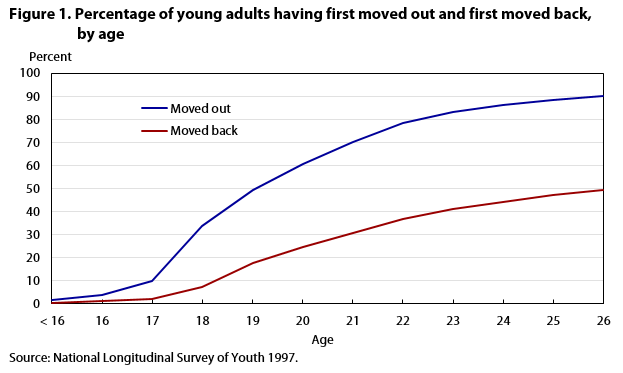Millennials will go on to become the largest population cohort in the US this year. They’ve been bringing marketers and advertisers waves of excitement and anticipation, as the largest consumer group. They’ve also been bringing them nightmares. Everyone is busy studying this group of youngsters aged anywhere from 16 to 34 who comprise such a diverse group, trying to make sense of their aspirations, dreams and fears.

We are told they are a highly socially connected group, always with their smartphones and computers. They distrust big business and dislike being sold anything. They are huge on “doing good” and would like to associate themselves with companies and brands that are known to do good in society. So, willy-nilly, every brand and corporation are going in search of a cause in order to woo the millennial customer. Millennials are said to be self-centred and sure of what they want from life.
Perhaps it’s time to ask ourselves how much of this is fact and how much is myth. And is it true of millennials everywhere?

It might help to study them a little more in order to understand them. To start with, like every other generation before and after them, the millennials are a product of the age they grew up in. And to their misfortune, their age has been dominated by the financial crisis which wreaked havoc when the youngest amongst them would have been no older than 16 or 17 years of age. It wouldn’t be wrong to say that they have been shaped by the financial crisis.
In fact, they are the segment of the population worst affected by the financial crisis. According to a study of the US Bureau of Labour Statistics, more than half the millennials who had left home and were leading independent lives in the US, returned home to stay with their parents. They found it hard to find jobs, although most were well-educated. In fact, the millennials happen to be the best-educated generation ever in the US. And, although they value their independence, as many as 20% of them were still living with their parents at age 27, which is unusual in America.

Due to the financial crisis, and even during it, millennials took on student loans that they will probably spend the rest of their lives repaying. Student loan debt is the highest ever in the US at over US$ 1.5 trillion and is a cause of worry for students, parents and policymakers alike. As a result, millennials have had to cut back on their dreams and aspirations in terms of marriage, home-buying and raising a family. They have also cut back on their spending, saving more than their parents did at the same age. This matters, since consumer spending is two-thirds of the American economy. Yet, as this article in The Atlantic explains, millennials have no regrets about spending on higher education as they believe that will stand them in good stead.

Across the Atlantic, it seems to be quite the same in the UK, as The Independent reports. Although the youth in the UK are peeved with the government over university tuition fees, and many are supporters of Labour’s leader, Jeremy Corbin, since he has promised that tuition would be free if Labour were to come to power. I am certain their bigger concern now is what happens after Brexit, which increasingly looks like a no-deal Brexit.
Things are slightly, but not very different, in continental Europe. Here, youth unemployment across the EU-28 in January 2019 was 14.9% and higher in the Euro Area at 16.5%. We know that in southern Europe, youth unemployment is even higher; it is 33% in Italy, 32.6% in Spain and 39.1% in Greece (November 2018). Many of the more educated and younger workforce from these countries have migrated to countries in Northern Europe in search of better futures.

According to a study by the Pew Research Centre in 7 European countries in 2014, more millennials feel that their countries are moving in the right direction than the older generation aged 50 years and more. Of course, they are fewer in number than in the US, given Europe’s ageing societies. The study also says that fewer millennials in Europe feel in control of their futures as compared to those in the US and in Britain; and with the exception of Spain, fewer millennials in Europe think that hard work and good education are the tickets to success.

Some of this could be down to cultural differences. But I think the kind of institutions and societies that Europe has have also affected how people think about life. Since the state plays a much bigger role in European societies and welfare and entitlement programmes are more generous than in the US and the UK, millennials have perhaps come to believe that their own role in shaping their futures is limited. The differences are cultural, but what has shaped the culture is institutional in nature and they have a symbiotic relationship.
Some in the Anglo-Saxon economies might view this as socialistic, as The Economist has indeed reported on the rise of a new “millennial socialism”. If this has any reference to the millennial generation, such a reading is way off the mark. Millennials are by no stretch of imagination socialistic in their beliefs or in their actions. They are too busy trying to navigate economic chaos and further their careers to care about ideology. They are a pragmatic lot, having been wisened by the financial crisis and its aftermath. If anything can be said about millennials with some certainty – at least those in Western countries – it is that they have fuelled the growth of companies like Airbnb, Uber and Lyft, giving rise to what we now call the “shared economy”. Still, they are too much a part of the capitalist consumption economy to rebel against it (their attachment to technology and gadgets is one manifestation of it). If there was even a drop of socialist blood coursing through their veins, the millennial generation would have seized the opportunity of the financial crisis to precipitate a political crisis, pushing forward their socialist ideas. The “Occupy Wall Street” opportunity did present itself but, alas, the 2000s are not the 1960s.

If “millennial socialism” is merely a label for Alexandria Ocasio-Cortez’s or Jeremy Corbin’s brand of policy-making, then I would say that populism doesn’t make for socialism. Some of the ideas in the Green New Deal are wishful thinking, even foolish and irresponsible.
What about millennials in India and in other parts of Asia. Here you’ll find them in large numbers; indeed, in India, around 65% of our population is under the age of 35. Sadly, we are only squandering the much-touted demographic dividend that we are said to possess. With unemployment amongst the educated youth estimated to be around 16%, we are unable to provide jobs for the 12 million or so who graduate from our universities each year. John Bluedorn, Senior Economist at the IMF, while speaking at a Brookings India event recently, said that youth inactivity in India (those not in education, employment or training) is the highest among emerging economies at 30%.

The urban affluent youth in India are comfortable in their jobs, and are busy chasing their dreams just the way youngsters always have. They too are socially connected through technology and social networking plays a big part in their lives. They are success-oriented and as in the West, success is defined in material terms. Thanks to social media and the explosion of the internet, they are much more aware of what’s going on around the world than the older generation. However, all this has not awakened their political consciousness enough to inform their political views or make them think critically on politics and policy-making. They are able to exercise their franchise, but not many of them care enough to vote. Let’s just say they too are busy going about their lives, trying to make good of it.
In China, from what we read and know, the youth are again too busy getting themselves a good education and settling down in their careers. They have had access to the internet long before their counterparts in many other Asian countries did and spend a good deal of their time on it. However, they know the internet is monitored and they have no way to voice their political views in public. There too, conspicuous consumption and material success have become the chief goals in life. What makes the Chinese millennial case slightly different in my view is that they have become engaged and co-opted in a sort of “national project” to become the largest economy and the most technologically advanced one and they are preoccupied with that.

Meanwhile, in nearby South Korea, we have the most connected economy. Here, the youth are connected 24×7 with the fastest internet speeds, and social media and gaming, along with Korean entertainment, form a big part of their lives. With all the education that millennials here have, they still cannot find good enough jobs; most end up working part-time gigs at several jobs to make ends meet. They call their country “hell” as this article in the Washington Post reports, and the dream of every millennial is to migrate to the US as soon as they can.
So, as we can see, there are millennials and millennials. Sure, there are some similarities, but to generalize about a generation that is drawn from different socio-economic classes and from different countries and cultures is misplaced and misleading, in my opinion. If anything, it tells me that the millennials are just like any other generation; the only differences are that they have been shaped by the financial crisis and by technology. They have had to put off most of their aspirations and desires and that puts marketers in a quandary. How do we get them to spend more, given that many of them are not planning families or homes just yet? But does that make them self-centred or suspicious of big business? I think not.

I think we are making too much of the millennial being a different creature. If we look beneath, I think we’ll find that they are driven and motivated by the same dreams and aspirations as all of us were at their age. They are just navigating very difficult times, economically speaking, and trying to make the most of their careers.
And finally, about the millennial’s so-called search for authenticity, don’t we expect it as well? As marketers and brand communication folks, we need to always keep searching for meaningful brand benefits that go beyond the transactional, and that add value to people’s lives.
Even the millennial who isn’t going out much, but is ordering in a meal to enjoy over a Netflix show at home needs to feel emotionally rewarded in some way. And those little ways in which we can add meaning to consumers’ lives are what matter to them. And what matter to building brands.
So, let’s just stop fretting over millennials, like they are from another planet. They get excited by the same things as us, and get scarred by the same things as us. Okay, perhaps a little more scarred, than you and I.



Hello, I want to subscribe for this web site to
obtain newest updates, thus where can i do it please assist.
LikeLike
Hi. Glad to hear you would like to subscribe to my blog for updates.
I send out a monthly newsletter from my blog called The Whistle. You may subscribe to that by filling in the pop-up subscriber form that appears on the blog site or you can visit the dedicated page for subscriptions called The Whistle Newsletter and fill in your email details there. Thank you.
LikeLike
My brother suggested I might like this blog. He was
totally right. This put up truly made my day. You cann’t believe just how
much time I had spent for this info! Thank you!
LikeLike
Thank you. I am glad you found this post informative and useful. However, as a former cigarette smoker, I must tell you that I do not approve or endorse smoking or vaping as I believe the youth, especially teens are taking to it in a big way.
LikeLike
If you are going for finest contents like me, simply visit this website every day since it offers quality contents, thanks
LikeLiked by 1 person
Hi there just wanted to give you a quick heads up
and let you know a few of the pictures aren’t loading properly.
I’m not sure why but I think its a linking issue.
I’ve tried it in two different web browsers and both show the same results.
LikeLike
Thanks for finally talking about >Making Sense of the
Millennial Myth – Peripatetic Perch <Liked it!
LikeLike
I could not refrain from commenting. Very well written!
LikeLike
These are actually fantastic ideas in about blogging.
You have touched some pleasant points here.
Any way keep up wrinting.
LikeLike
Very nice post. I just stumbled upon your weblog
and wished to mention that I’ve really enjoyed browsing your weblog posts.
After all I’ll be subscribing for your rss feed and I’m hoping you write again soon!
LikeLike
[…] course, a reaction to the 2008 Financial Crisis, in which millennials suffered the most, as I have written previously on my blog. Unfortunately, most marketers have read this as a sign that millennials are […]
LikeLike